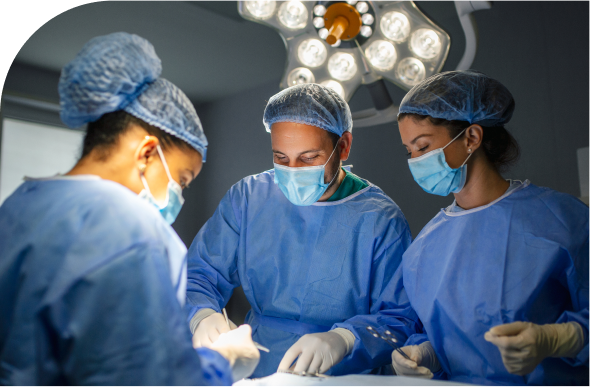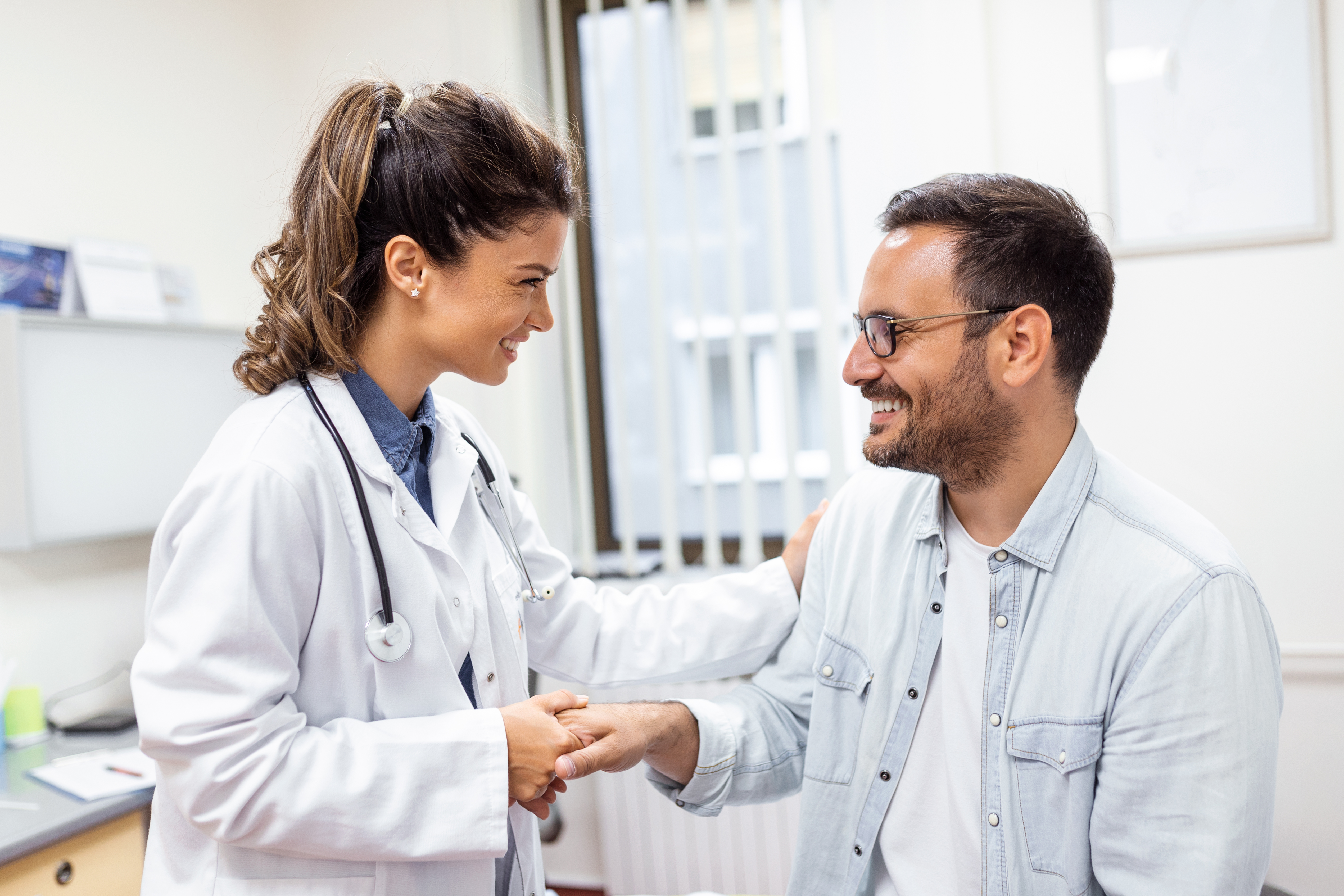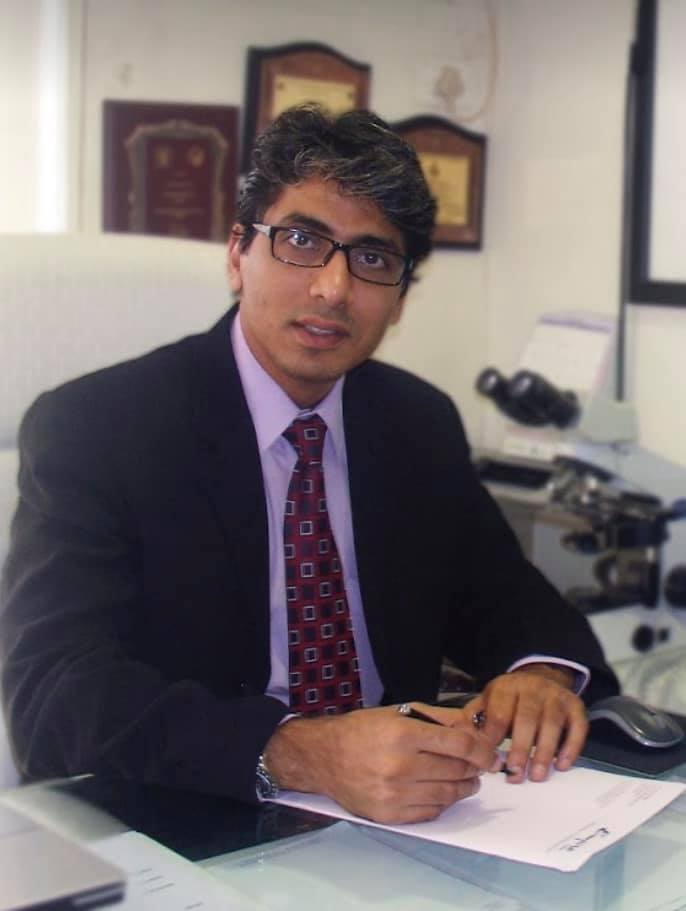

With extensive training, experience, and dedication to patient care offering the comprehensive stomach cancer treatments personalied to meet the unique needs of each individual.

The stomach is a muscular, hollow organ that sits between the oesophagus and the intestines. It is located in the left upper abdomen. The stomach likewise makes a necessary compound for the body to ingest vitamin B12. The body needs this vitamin to help make red blood cells and keep the nervous system healthy.

Disease creates when sound cells in the stomach become strange and develop excessively fast. A tumor is a mass of abnormal cells in the stomach. Malignant (cancer) tumors have the potential to spread to other parts of the body.
The stomach is home to lymph nodes. When cancer cells break away from a tumor, they frequently spread first to the lymph nodes. Therefore, during cancer surgery, surgeons frequently remove them and send them to the laboratory, where a pathologist examines them to determine whether or not they contain cancer cells. The stage is crucial because it assists the doctor in selecting the best course of treatment for you.

Although the exact causes of cancer are still unknown, there are known risk factors that can increase a person’s risk of developing the disease.
Some of these risk factors have been shown to have an effect on the DNA of cells in the stomach and oesophagus, which can lead to abnormal cell growth and the development of tumors.
Having a gamble component, or even a few gamble factors, doesn’t imply that you will get the infection. Additionally, there may not have been any known risk factors for many people who contract the disease.


An abdominal pain or burning sensation, heartburn, or indigestion (dyspepsia) are early signs of stomach cancer.
Later symptoms of stomach cancer may manifest as a sense of fullness even after consuming a small meal, persistent nausea and/or vomiting, and loss of appetite accompanied by unexplained weight loss.
These symptoms, particularly when occurring together or persisting over time, warrant prompt medical evaluation to assess for possible stomach cancer or other underlying health conditions.

Changes in metabolism can lead to reduced hunger, despite normal eating habits. It’s important to seek medical attention if experiencing persistent weight loss without an obvious cause, as early diagnosis improves treatment options and outcomes for stomach cancer.

Persistent Nausea and vomiting, if often experiencing along with other concerning signs such as unexplained weight loss or abdominal discomfort, prompt medical evaluation is advised for further investigation and diagnosis.

This can indicate gastrointestinal bleeding, a serious symptom often associated with conditions like stomach cancer. Immediate medical attention is crucial for diagnosis and treatment.

Through years of treating cancer patients and participating in clinical trials, doctors have gained a deeper understanding of the most effective treatments for each type and stage of cancer. This expertise enables them to provide the best stomach cancer treatment in Mumbai, ensuring personalised and advanced care for every patient.
The most common cancer tests are listed in this section. A patient may not require all of the tests to be carried out. Your doctor will choose the tests that will give him or her the most insight into the tumor or disease.
Your doctor will examine you and take a complete medical history before referring you for tests. You may likewise have a blood test and chest x-beam to really look at your overall wellbeing.

During this procedure, a doctor will insert a thin, flexible “telescope” (an endoscope) into your throat to examine your stomach, oesophagus, and upper bowel. The doctor can perform a biopsy (putting instruments down the endoscope) and examine the tissue under a microscope if anything unusual is observed.

A CT examine is a sort of x-beam that gives an image of organs and different designs (counting any cancers) in your body. It is used to examine a cancer in greater detail and its relationship to your body’s surrounding organs. It likewise gives data connected with disease spread into the lymph hubs, liver or lungs.

Positron Emission Tomography (PET) Scan This test is combined with a CT scan by injecting a radioactive substance into the body to highlight all of the places where the tumor has or can spread. After an MRI or CT scan, additional information may be gathered through this test. All patients do not require a PET-CT scan. This scan’s necessity will be determined by your physician.

Since endoscopy is now available, this barium swallow and X-ray test is less common. If you have this test, you will drink a barium-rich liquid. Your stomach, oesophagus, and first part of your bowel will be coated by this. A radiologist will take x-rays of your chest and abdomen while you lie down on a table. When x-rays are taken, this will clearly show the lining, allowing for the identification of any abnormalities in the lining.

Similar to an endoscopy, the endoscopic ultrasound scan (EUS) may occasionally be performed on individuals who may have stomach cancer. The endoscope has a small ultrasound probe on the end for this test to get more information about the tumor’s local spread. It may assist the doctor in determining whether you require additional treatment before surgery.

A biopsy is a diagnostic procedure performed under a microscope by a pathologist using a small amount of tissue taken from an abnormally found area or lump. If the doctor notices anything unusual during the endoscopy or EUS, they can remove some tissue with small instruments and examine it under a microscope. Cancer has been confirmed by this.

Diagnostic laparoscopy The surgeon may occasionally insert a small tube with a light at the end through a cut in your abdomen before deciding whether or not to perform an operation on your stomach. This is known as a laparoscopy. This will help determine whether the stomach should be removed entirely or in part. Under general anesthesia, the laparoscopy is performed.

Despite cancer surgeries being time-consuming and extensive, advancements in medical care have made them safer. Dr. Deepak Chabbra, recognised as one of the best doctor for stomach cancer in Mumbai, utilises advanced surgical techniques and state-of-the-art instruments to ensure precision and effectiveness.
Improved post-operative monitoring and anaesthesia techniques have further enhanced the overall safety of stomach cancer surgical procedures.

After an anaesthetic, the movement of the bowel slows down and usually takes about 72 hours to get back to normal. After about 48-72 hours you will probably be ready to start taking small sips of water, however, your doctors will tell you when it is appropriate for you to start drinking some fluids. This will be gradually increased after a couple of days until you are able to eat a light diet, usually four or five days after your operation
You will probably be ready to go home in about two weeks after your operation and once your stitches have been removed. If deemed appropriate your doctor may send you home with stitches and call you later to remove the stitches. By and large, you should be able to climb several flights of stairs after your discharge from the hospital and you will be given diet instructions.
Before you leave hospital you will be given an appointment for a post-operative check-up at the outpatient clinic
After stomach surgery, start with small meals to manage initial discomfort from reduced stomach capacity. Avoid fizzy drinks during meals to prevent feeling overly full. Monitor your diet closely with a food diary to identify any foods causing issues, and ensure adequate intake of iron, calcium, and vitamin D-rich foods or supplements due to potential absorption challenges post-surgery.


Dr. Deepak Chhabra is a consultant Surgical Oncologist with an extensive experience in cancer surgeries. He is has specialized in Hepato (Liver) -Biliary (Gallbladder) and Pancreatic Cancer Surgeries.

Take the first step towards your journey to wellness by scheduling an appointment with Dr. Deepak Chhabra, a trusted oncologist dedicated to providing compassionate care and personalised treatment plans. Experience the best stomach cancer treatment in Mumbai.
Discover first hand accounts from patients who have experienced compassionate care and expert treatment at our clinic. Read their reviews to get to know their journey.
5 Out of 5 from 92 Reviews
